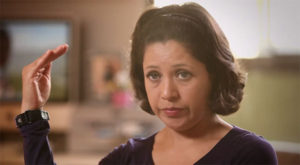Although Maria had been in Canada for over five years, when she became a mom she felt like she was a new immigrant all over again. Maria experienced postpartum anxiety and depression after the births of both of her children and found that the support of other immigrant moms and her own family was essential to her recovery.
Transcript:
When Maria’s son was a toddler, she gave birth to her daughter.
So the second time around with my baby girl, it was like around six, seven months old, she was like around six months old and I started to realize that I was very, I was getting very impatient with her because I was exhausted.
And, and so I started to notice that I was very short temper with both of them and very impatient, very intolerant. And also every time, this was escalating. And I, I realized that I was starting to be out of control of my emotions. That was like the key for me.
Now I know that I had anxiety even in my first pregnancy. But I actually took me a lot, a long time because I realized that I had a depression, post partum depression, and anxiety when my second baby was nine months.
My anxiety was about everything. Even though I was living, I was been living in Canada for five years, back then, for me it was like feeling new in the country, like a newcomer again.
Maria began going to Family Place to be with other new moms:
One of the facilitators told me about Bridging Group that it was going to take place at the Family Place in Spanish. Moms from Mexico, Peru, Columbia and we all have the same feeling. And because we all get, got together and I think it was like between two or three times a week. It was like a family. So all the answers that I needed to hear about how do I feed my baby? How do I train my baby to sleep? And how do I, all the ‘how do I’ do this. The Family Place staff and the other mums there they helped me a lot, a lot.
So I have to say that being out, forcing myself to go out, was like a rescue thing for me.
As fall transitioned into winter, Maria began to feel her mood shift again.
The kids were starting to feel that mommy wasn’t herself again. I was feeling, I think, even worse than the first time. Because the first time I was not aware what was going on. So this second time I felt like, like a failure. I felt like I was doing everything in my hands and it wasn’t still working.
I ended up crying and I remember I called my dad to Mexico because he’s also, he is also my best friend, he is. And, and I said: I need somebody to take care of me. And he said: come, come to Mexico, come here and I’ll take care of you. and we take care of you here.
Maria spent two much-needed weeks recovering with her family in Mexico:
And I explain him how different it is to have a baby, to raise a baby here compared to Mexico. In Mexico we take it for granted, but you have all your family. And even if you need to go to a doctor’s appointment, your mum comes and: yeah I’ll stay with the baby. You go to the doctor and you come back.Here no. You have a doctor’s appointment, you go with the baby. Wherever you need to go, you go with the baby. You don’t have a rest. You don’t have a break.
My mom she send me the book, when I was reading that book I realized that I was reading it not only as a mom with postpartum depression, but as the daughter of a mom who suffered postpartum depression and was never diagnosed.
At the end of the preface the, this mum says, and I remember reading it with tears in my eyes. She says: I promise you you’re going to feel better even if you don’t feel like you’re going to be better. You are going to be better. And I was, when I was really bad and I was reading that and I was in tears I said: I’m not going to feel better, this is never going to be away. And I said I hope you, what you’re saying is true, you know?
And now I can say thank you to so many people, to so many things, to so many, actually thank you to postpartum depression. Because now I know that because of what I went through I’m who I am right now, I’m a better mum, a better Maria, a better person, a better wife and that and it definitely brought my family close, closer together. And my extended family closer to me, as well. So it’s been very intense, very difficult, many ups and downs but it’s worth it, it’s worth it.
